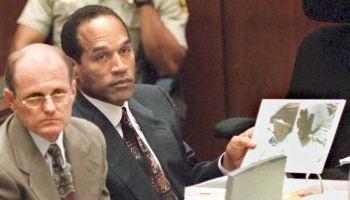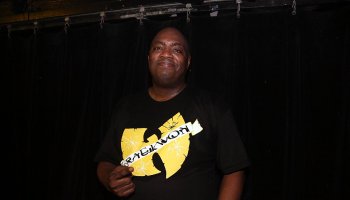Name Game.Rapper Rick Ross was allowed to keep his alias after successfully defeating former drug lord, Freeway Rick Ross in a California appeals court. Freeway filed a lawsuit in 2010 claiming infringement on his namesake. According to Judge Roger Boren however, Rozay was protected under the first amendment.
“We recognize that Roberts’ work — his music and persona as a rap musician — relies to some extent on plaintiff’s name and persona. Roberts chose to use the name ‘Rick Ross.’ He raps about trafficking in cocaine and brags about his wealth. These were ‘raw materials’ from which Roberts’ music career was synthesized. But these are not the ‘very sum and substance’ of Roberts’ work.”
“Roberts created a celebrity identity, using the name Rick Ross, of a cocaine kingpin turned rapper. He was not simply an impostor seeking to profit solely off the name and reputation of Rick Ross. Rather, he made music out of fictional tales of dealing drugs and other exploits—some of which related to plaintiff. Using the name and certain details of an infamous criminal’s life as basic elements, he created original artistic work
Rick Ross Beats Freeway Ricky Ross In Court [Update: Freeway Ricky Ross Responds]
Rick Ross is allowed to keep his rap moniker after a judge sided with him in appeals court, on the grounds of the First Amendment.
It looks as though the on-going battle between rapper Rick Ross and former drug lord Freeway Rick Ross has finally come to a close. It’s been exhaustive, to say the least. In March a judge had ruled against Freeway Ricky claiming he took too long to file his suit against the MMG boss (he apparently was aware the rapper was using his name since 2006 but only filed his complaint in 2010), but the OG Rick Ross wasn’t giving up, as he followed up in appeals court.
However, Freeway Ricky’s appeal wasn’t quite as successful as he would have liked. THR reports that in his appeal, Freeway Rick Ross asked whether the rapper’s work with a new record label could be considered as part of the same “single publication” as his previous work, or should be considered a “republication” that entitled the former kingpin to bring forth his claims yet again. In the end, judge Roger Boren dismissed the case under the First Amendment.
“We recognize that Roberts’ work—his music and persona as a rap musician—relies to some extent on plaintiff’s name and persona,” Judge Boren stated. “Roberts chose to use the name ‘Rick Ross.’ He raps about trafficking in cocaine and brags about his wealth. These were ‘raw materials’ from which Roberts’ music career was synthesized. But these are not the ‘very sum and substance’ of Roberts’ work.”
[Update: Freeway Ricky Ross Responds]
The original Rick Ross has issued an official statement on the above via AllHipHop, also touching on authenticity in hip-hop culture, the sensationalization of illegal drug activity and its impact on our youth.
“I respect Hip-Hop as an art form and consider many of its artists some of my close friends. But I believe the art form owes an obligation of authenticity. You cannot go out and say you sold cocaine at Kilo to Metric ton scale and be so detached from the experience. If you do, you have an obligation to the youth to tell them the truth and not lie about the facts of your circumstance to try to further validate the mistruth.
There is a teachable moment about the state of our community when a man who has a respectable job as a correctional officer, has to recreate himself in my former image as a large-scale kingpin to gain what he feels is social acceptance as a successful man. I along with many others would have given it all up for stability and opportunity, when Reagan came into office with Trickle down gutting assistance programs, and privatization of public sector jobs ripped through our cities it strip-mined those types of stable jobs in a very short period from Black America.
I will continue to go around the country and speak at schools, speaking to the need for the youth to avoid getting caught up in the dope game. Also I will be going city to city giving artists that don’t get looks by labels Mixtape exposure. I look forward to the release of my autobiographical book due out in February, and film in development to help tell the truth about how Black American Cities developed and turned to drugs, the dope game and its consequences.”
Well said.











